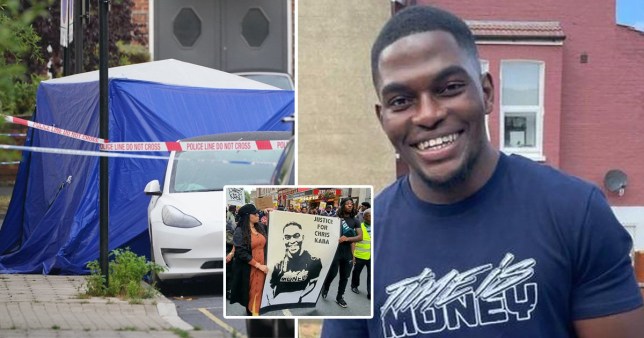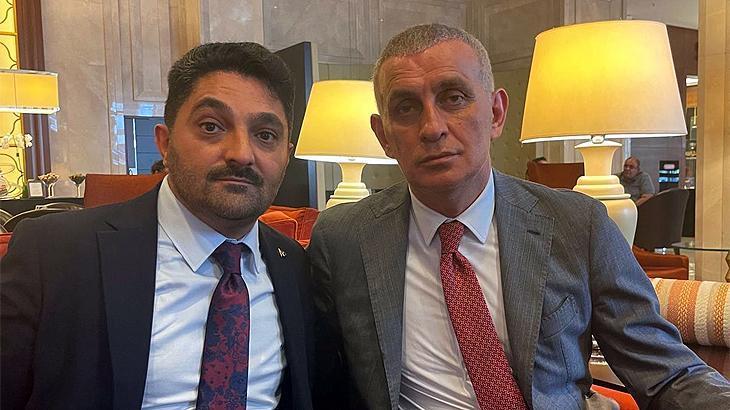Chris Kaba Panorama: Police Watchdog Files Ofcom Complaint

Table of Contents
The Panorama Investigation: Key Findings and Allegations
The Panorama documentary, focusing on the Chris Kaba shooting, presented a compelling narrative challenging the official account of events. Keywords surrounding this section include Chris Kaba shooting, Panorama documentary, police misconduct, IOPC investigation, evidence, and witness testimonies. The program centered on several key allegations:
- Questionable Police Tactics: The documentary questioned the tactics employed by the Metropolitan Police, suggesting that the pursuit of Chris Kaba's vehicle was excessive and potentially reckless, leading directly to the fatal shooting.
- Lack of Transparency: Panorama alleged a lack of transparency from the Metropolitan Police in the handling of the evidence and the investigation's initial stages.
- Conflicting Accounts: The program highlighted discrepancies between witness testimonies and the official police narrative, casting doubt on the initial claims surrounding the shooting.
- Forensic Evidence: The documentary presented forensic analysis and evidence that seemed to contradict the police's version of events, raising serious questions about the justification for the use of lethal force.
- Officer's Actions: The Panorama investigation scrutinized the actions of the police officer involved, suggesting potential breaches of procedure and misconduct.
These allegations, supported by witness accounts, police radio transmissions, and forensic evidence presented in the documentary, have significantly impacted the IOPC's ongoing investigation and heightened the potential for a criminal prosecution against the officer involved. The program also leveled significant criticisms at the Metropolitan Police's handling of the case, specifically their initial response and subsequent communication with the public.
The IOPC's Ofcom Complaint: Grounds and Rationale
The IOPC's decision to file an Ofcom complaint against the BBC's Panorama program is a significant development. Keywords central to this section are IOPC complaint, Ofcom, BBC, media regulation, impartiality, accuracy, Chris Kaba case, and public interest. The IOPC's complaint centers around concerns that the Panorama program:
- Breached Impartiality: The IOPC argues that the program may have presented a biased account of events, potentially compromising the impartiality required in reporting on an ongoing investigation.
- Compromised the Investigation: The IOPC expressed concern that the program's content could potentially prejudice the ongoing investigation and influence the judicial process.
- Accuracy Concerns: The IOPC may have raised concerns about the accuracy of certain information presented in the documentary, potentially leading to a misrepresentation of the facts.
The IOPC’s rationale highlights the delicate balance between investigative journalism's role in holding authorities accountable and the potential for media coverage to jeopardize ongoing legal proceedings. The complaint’s outcome could significantly impact the BBC’s reputation and future broadcasting practices, setting a precedent for media coverage of sensitive police investigations. The legal aspects of the complaint and its potential outcomes remain to be seen, with Ofcom’s investigation crucial in determining the BBC's adherence to broadcasting standards.
Potential Impact on Public Trust and Police Accountability
The IOPC's Ofcom complaint has far-reaching implications, impacting public trust in both the police and the media. Keywords here include police accountability, public trust, police reform, investigative journalism, media scrutiny, and Chris Kaba legacy. The key considerations include:
- Erosion of Public Trust: The complaint could further erode public trust in the police, particularly if the IOPC's concerns are substantiated.
- Impact on Future Investigations: The outcome of the complaint could influence future investigations into police misconduct, potentially chilling investigative journalism or impacting the transparency of such probes.
- Role of Media Scrutiny: The case underscores the crucial role of the media in holding the police accountable for their actions. A chilling effect on investigative journalism could hinder efforts to expose police misconduct.
- Chris Kaba's Legacy: The Chris Kaba case has become a symbol in the fight for greater police accountability and systemic change. The outcome of this complaint will significantly impact the ongoing conversation surrounding police brutality and reform.
Reactions and Responses to the Ofcom Complaint
The IOPC's Ofcom complaint has elicited a range of responses. Relevant keywords here include BBC response, public opinion, legal experts, political reaction, Chris Kaba family, and Ofcom investigation. Key reactions include:
- BBC's Response: The BBC has defended its reporting, asserting its commitment to journalistic integrity and the public's right to know.
- IOPC's Stance: The IOPC maintains its position, emphasizing its responsibility to ensure the fairness and integrity of the ongoing investigation.
- Public Opinion: Public opinion is deeply divided, with some supporting the BBC's investigative work and others expressing concern about potential bias and interference in the judicial process.
- Legal Experts' Analysis: Legal experts have weighed in on the legal merits of the IOPC's complaint, offering diverse interpretations of its implications.
- Political Reactions: Political figures have expressed varying opinions, reflecting the divisive nature of the issue.
- Chris Kaba Family's Perspective: The Chris Kaba family has expressed their continued desire for justice and accountability.
The Ofcom investigation will play a crucial role in determining the outcome of this conflict, shaping the future of media regulation and its intersection with police accountability.
Conclusion
The IOPC's Ofcom complaint against the BBC Panorama program investigating the death of Chris Kaba underscores the intricate relationship between investigative journalism, police accountability, and media regulation. The outcome of Ofcom's investigation will have profound implications for the pursuit of justice in the Chris Kaba case and the broader discussion surrounding police brutality and accountability.
Call to Action: Stay informed about the developments in the Chris Kaba case and the Ofcom investigation. Follow updates on the Chris Kaba Panorama investigation to ensure transparency and accountability in the pursuit of justice. Continue to demand greater transparency and accountability from law enforcement agencies. The fight for justice for Chris Kaba, and for systemic change within policing, requires continued vigilance and informed engagement.

Featured Posts
-
 Develop Your Boxing Skills Ace Power Promotion Seminar March 26
Apr 30, 2025
Develop Your Boxing Skills Ace Power Promotion Seminar March 26
Apr 30, 2025 -
 Ukraine Conflict How Warmer Weather Affects Russias Military Campaign
Apr 30, 2025
Ukraine Conflict How Warmer Weather Affects Russias Military Campaign
Apr 30, 2025 -
 Stuttgart Atff Futbol Altyapisi Icin Yeni Bir Doenem
Apr 30, 2025
Stuttgart Atff Futbol Altyapisi Icin Yeni Bir Doenem
Apr 30, 2025 -
 Where To Stream Untucked Ru Pauls Drag Race Season 16 Episode 11 Legally And Free
Apr 30, 2025
Where To Stream Untucked Ru Pauls Drag Race Season 16 Episode 11 Legally And Free
Apr 30, 2025 -
 A Papal Funeral The Challenges Of Seating And Protocol
Apr 30, 2025
A Papal Funeral The Challenges Of Seating And Protocol
Apr 30, 2025
